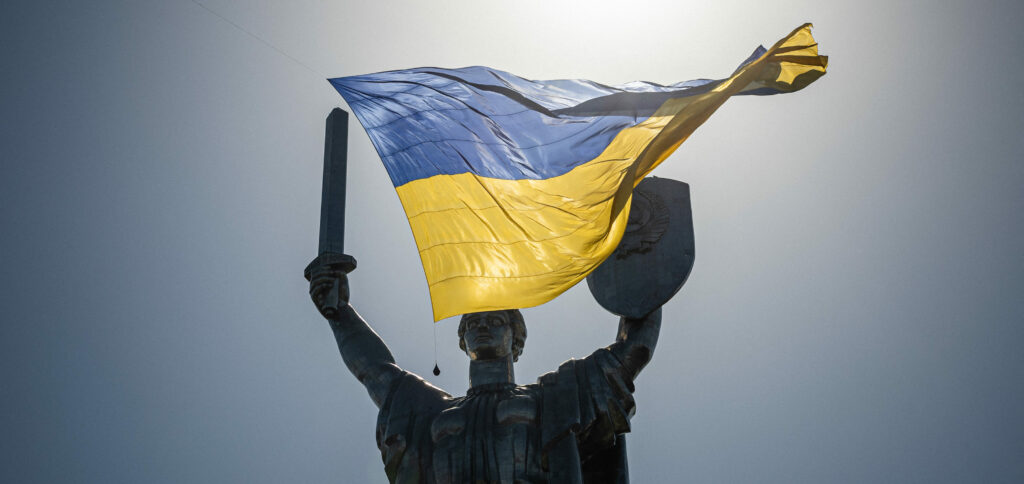Russia invades Ukraine 🇺🇦
On February 24, Russian President Vladimir Putin orders the invasion of ukraine and opens a crisis unprecedented since the end of the Cold War. The conflict causes the largest flow of refugees into Europe since the end of the Second World War and costs the lives of thousands of soldiers and civilians.
ADVERTISING
Testimonies against the Russian Army are multiplying, with accusations of murder of civilians, torture and rape. Russia launches hundreds of retaliatory attacks on the Ukrainian power grid, leaving millions of Ukrainians in the dark in the winter months.
Inflation fueled by the energy crisis 🔋
Started in 2021 due to problems in supply chains coupled with strong demand amid the post-pandemic recovery, the price rise accelerates in 2022 and reaches levels unseen in decades.
A inflation It is accentuated by the war in Ukraine, which has plunged Europe into a deep energy crisis. In response to Western sanctions, Moscow multiplied reprisals, hitting, in particular, the EU's weak point: its dependence on Russian gas. Its gas exports, mainly to Germany and Italy, are in freefall. The war also caused prices for cereals and, by extension, animal feed to soar.
ADVERTISING
Change in the issue of abortion in the USA 🇺🇸
In June, the United States Supreme Court returned to each state in the Union the power to prohibit the abortion in its territory, thus burying its 1973 decision in the case “Roe v. Wade”, which had established it as a constitutional right. After the change, about 20 states either completely ban or seriously limit the right to abortion.
Political instability in the United Kingdom 🇬🇧
After a succession of scandals and resignations in his government, British Prime Minister, the conservative Boris Johnson, submitted his resignation in July. Liz Truss was officially named to succeed him.
The most short-lived prime minister in the country's modern history, Truss lasted just 44 days in office. She resigned after causing a political and financial crisis with her economic program. Rishi sunak came to power at the end of October, during a period of unprecedented instability in the United Kingdom. He is the fifth head of British Government since the Brexit referendum in June 2016.
ADVERTISING

Extreme weather phenomena ☀️
In 2022, disasters linked to climate change they multiplied. Europe recorded its hottest summer, with record temperatures and heat waves that cause droughts and fires. At least 15 deaths are directly attributable to this extreme heat in Europe, according to the World Health Organization (WHO). China also breaks heat records in August, and drought threatens the Horn of Africa region with famine.
In Pakistan, historic floods, due to monsoons of abnormal proportions, kill more than 1.700 people and force eight million to move. A third of the country is flooded. If projections for this year are confirmed, the eight years from 2015 to 2022 will be the hottest on record, according to the World Meteorological Organization (WMO).
Riots in Iran 🇮🇷
On September 16, 22-year-old Kurdish-Iranian Mahsa Amini died in a hospital three days after being detained by the morality police. She was accused of violating the dress code of the Iran for women, which requires them to cover their hair in public and wear discreet clothing. Her death sparked a wave of demonstrations across the country, the largest since the 1979 Islamic Revolution.
ADVERTISING
The demonstrations for women's freedom progressively transformed into a broader movement directed against the Islamic regime and extended to universities and schools, despite repression. Authorities report more than 300 deaths, while a Norway-based NGO counts at least 469.
Protests against “zero Covid” in China 🇨🇳
The company’s “zero Covid” strategy China, which entailed the confinement of entire neighborhoods, or cities, as soon as a case appeared, provoked demonstrations at the end of November of a magnitude unheard of in decades.
The authorities reacted and repressed the protests, but also decided to end the “zero Covid” policy. Since then, Covid-19 cases have skyrocketed in the country and hospitals are facing difficulties with the high number of patients.
ADVERTISING

Advances of the far right in Europe ✋
In Europe, ultraconservatives won important victories in the legislative elections in several countries:
- Hungary: fourth consecutive victory for the party of Hungarian nationalist leader Viktor Orban;
- França: Marine Le Pen's National Regroupment achieved a historic breakthrough in June, becoming the first opposition party in the National Assembly, where President Emmanuel Macron lost his absolute majority.
- Sweden: the nationalist and anti-immigration Swedish Democrats party was the big winner in September's legislative elections, which emerged as the country's second political force.
- Italy: Giorgia Meloni won a historic victory with her post-fascist Brothers of Italy party (“Fratelli d'Italia”) and took over as head of Government in October.
Hope for peace in Ethiopia 🇪🇹
After two years of conflict, the Ethiopian federal government and rebel authorities in the Tigray region signed, on November 2, an “end of hostilities” agreement. The expectation is that the pact will end a war described by NGOs as “one of the bloodiest in the world”. Fighting had resumed at the end of August, after a five-month ceasefire.
Since November 2020, the conflict has pitted the Ethiopian government, supported by forces from neighboring Eritrea, against the Tigray rebels. The conflict is marked by possible crimes against humanity committed by “all parties”, according to the UN, and has forced the displacement of more than two million Ethiopians.
In addition to the disarmament of the rebels, the peace agreement should allow the arrival of humanitarian aid to Tigray, which is almost isolated from the world. For more than a year, its six million inhabitants have suffered from serious shortages of food and medicine. The first humanitarian aid convoy since August arrived in the region on November 16.
Qatar, criticized host of the World Cup 🇶🇦
The organization of 2022 World Cup in Qatar brought a barrage of criticism to the host country.
The first Arab country to organize this major event was criticized for its treatment of foreign workers, the LGBTQ community and women, as well as the use of air conditioning in its stadiums, in these times when calls to save energy in the context of fight against climate change.
Much of the criticism is related to the situation of immigrant workers, an essential factor in a country where Emiratis represent just 10% of a population of three million inhabitants. Some NGOs speak of thousands of deaths in accidents during construction work for the World Cup, a number that the Doha government denies.
(With AFP)




